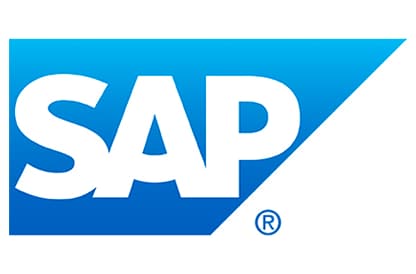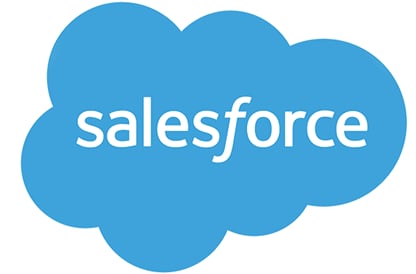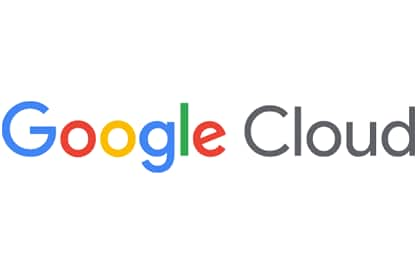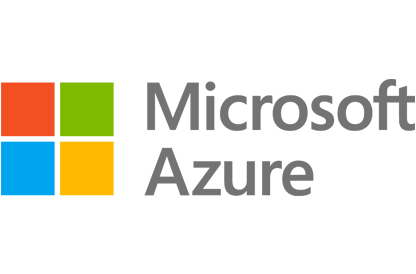Why OpenText
Why OpenText
Overview Why OpenText
OpenText brings decades of expertise to help you unlock data, connect people and processes, and fuel AI with trust
Manage and connect data
Unify data seamlessly across your enterprise to eliminate silos, improve collaboration, and reduce risks
AI-ready information
Get AI-ready and transform your data into structured, accessible, optimized information
Built-in security and compliance
Meet regulatory and compliance requirements and protect your information throughout its lifecycle
Empowering people
Overview Empowering people
OpenText helps people manage content, automate work, use AI, and collaborate to boost productivity
Customers
See how thousands of companies around the world are succeeding with innovative solutions from OpenText
Employees
Our people are our greatest asset; they are the life of the OpenText brand and values
Corporate Responsibility
Learn how we aspire to advance societal goals and accelerate positive change
Partners
Find a highly skilled OpenText partner with the right solution to enable digital transformation
How we compare
Content Management
Service Management
Deploy anywhere
Overview Deployment options
Explore scalable and flexible deployment options for global organizations of any size
Sovereign cloud
Local control. Global scale. Trusted AI
Private cloud
Unlock the value of the cloud while maintaining control and compliance
On-premises
Maintain full control of your data on your own infrastructure
Public cloud
Protect, scale, and use business information in your cloud of choice
AI leadership
Overview Aviator AI
See information in new ways
OpenText™ Aviator™ AI
AI that understands your business, your data, and your goals
OpenText™ MyAviator
Say hello to faster decisions. Your secure personal AI assistant is ready to get to work
OpenText™ Business Network Aviator™
Gain better insights with generative AI for supply chains
OpenText™ Content Aviator™
Power work with AI content management and an intelligent AI content assistant
OpenText™ Cybersecurity Aviator™
Improve your security posture with AI cybersecurity and agile threat detection
OpenText™ DevOps Aviator™
Enable faster app delivery, development, and automated software testing
OpenText™ Experience Aviator™
Elevate customer communications and experiences for customer success
OpenText™ Fax Aviator™
Turn every fax into instant action with AI
OpenText™ Service Management Aviator™
Empower users, service agents, and IT staff to find the answers they need
Aviator AI
Overview Aviator AI
See information in new ways
OpenText™ Aviator™ AI
AI that understands your business, your data, and your goals
OpenText™ MyAviator
Say hello to faster decisions. Your secure personal AI assistant is ready to get to work
OpenText™ Business Network Aviator™
Gain better insights with generative AI for supply chains
OpenText™ Content Aviator™
Power work with AI content management and an intelligent AI content assistant
OpenText™ Cybersecurity Aviator™
Improve your security posture with AI cybersecurity and agile threat detection
OpenText™ DevOps Aviator™
Enable faster app delivery, development, and automated software testing
OpenText™ Experience Aviator™
Elevate customer communications and experiences for customer success
OpenText™ Fax Aviator™
Turn every fax into instant action with AI
OpenText™ Service Management Aviator™
Empower users, service agents, and IT staff to find the answers they need
Analytics
Overview Analytics
Predict, act, and win with real-time analytics on a smarter data platform
Business Network
Overview Business Network
Connect once, reach anything with a secure B2B integration platform
Content
Overview Content
Reimagine knowledge with AI-ready content management solutions
OpenText™ Content Aviator™(AI)
Supercharge intelligent workspaces with AI to modernize work
Cybersecurity
Overview Cybersecurity
Integrated cybersecurity solutions for enterprise protection
OpenText Cybersecurity for SMBs & MSPs
Purpose built data protection and security solutions
OpenText™ Cybersecurity Aviator™(AI)
Reinvent threat hunting to improve security posture with the power of agile AI
DevOps
Overview DevOps
Ship better software—faster—with AI-driven DevOps automation, testing, and quality
Experience
Overview Experience
Reimagine conversations with unforgettable customer experiences
OpenText™ Experience Aviator™(AI)
Transform customer communications with private generative AI
OpenText™ Fax Aviator™(AI)
Turn faxes into workflow-ready data with AI
Legal Tech
Overview Legal Tech
Make smarter decisions with AI-powered legal software and services
OpenText™ eDiscovery
Accelerate eDiscovery with AI-driven speed and precision
OpenText™ Investigation
Optimize strategy with early case assessment and investigation tools
OpenText™ Core Insight
Get smarter eDiscovery with advanced TAR and automated document review
OpenText™ Core Legal Hold
Automate legal holds to eliminate risky and time-consuming processes
OpenText™ Legal Knowledge Management
Unlock knowledge and legal insights across content silos
Observability and Service Management
Overview Observability and Service Management
Get the clarity needed to cut the cost and complexity of IT operations
OpenText™ Service Management Aviator™(AI)
Redefine Tier 1 business support functions with self-service capabilities from private generative AI
APIs
Overview APIs
Build custom applications using proven OpenText Information Management technology
OpenText™ API Services
Build it your way with OpenText Cloud APIs that create the real-time information flows that enable custom applications and workflows
Device and Data Protection
Overview Device and Data Protection
Protect what matters, recover when it counts
Unified Endpoint Management Tools
- OpenText™ Endpoint Management
- OpenText™ ZENworks Suite
- OpenText™ ZENworks Service Desk
- OpenText™ ZENworks Configuration Management
- OpenText™ ZENworks Endpoint Security Management
- OpenText™ ZENworks Full Disk Encryption
- OpenText™ ZENworks Endpoint Software Patch Management
- OpenText™ ZENworks Asset Management
Solutions
Trusted Data & AI
Overview Trusted Data & AI
Secure information management meets trusted AI
OpenText AI Data Platform
A unified data framework to elevate data and AI trust
OpenText™ Aviator™ Studio
A place where you can build, deploy, and iterate on agents in your data's language
OpenText Discovery
A set of tools to help ingest data and automate metadata tagging to fuel AI
OpenText Data Compliance
A suite of services and APIs that make governance proactive and persistent
OpenText Aviator AI Services
Professional services experts who help you on your AI journey
Information Reimagined
Overview Information Reimagined
Get greater visibility and sharper insights from AI-driven information management. Ready to see how?
Knowledge reimagined
Transform daily work with enterprise content management powered by AI
Service Management reimagined
Cut the cost and complexity of IT service management, AIOps, and observability
Connections reimagined
AI-powered B2B integration for supply chain success
Conversations reimagined
Drive value, growth, and loyalty with connected customer experiences
Engineering reimagined
Agile development and software delivery? It only seems impossible
Security reimagined
Cybersecurity for the Enterprise
Decisions reimagined
Unlock insights with AI data analytics
Artificial Intelligence
Overview Aviator AI
See information in new ways
OpenText™ Aviator™ AI
AI that understands your business, your data, and your goals
OpenText™ MyAviator
Say hello to faster decisions. Your secure personal AI assistant is ready to get to work
OpenText™ Business Network Aviator™
Gain better insights with generative AI for supply chains
OpenText™ Content Aviator™
Power work with AI content management and an intelligent AI content assistant
OpenText™ Cybersecurity Aviator™
Improve your security posture with AI cybersecurity and agile threat detection
OpenText™ DevOps Aviator™
Enable faster app delivery, development, and automated software testing
OpenText™ Experience Aviator™
Elevate customer communications and experiences for customer success
OpenText™ Fax Aviator™
Turn every fax into instant action with AI
OpenText™ Service Management Aviator™
Empower users, service agents, and IT staff to find the answers they need
Industry
Overview Industry solutions
Improve efficiency, security, and customer satisfaction with OpenText
Energy and resources
Transform energy and resources operations with cloud, cybersecurity, and AI
Financial services
Boost customer experience, compliance, and efficiency with AI
Government
Reimagine your mission with government-secure information management
Healthcare and life sciences
Improve care delivery and patient engagement with AI-powered solutions
Legal
Modernize legal teams with automated, AI-powered legal tech solutions
Manufacturing
Modernize manufacturing operations and logistics to reduce costs and ensure compliance
Retail and consumer goods
Enhance consumer engagement with omnichannel retail solutions and AI
Enterprise Application
Overview Solutions for Enterprise Applications
Run processes faster and with less risk
Services
Services
Overview Services
Achieve digital transformation with guidance from certified experts
Professional Services
Modernize your information management with certified experts
Customer Success Services
Meet business goals with expert guidance, managed services, and more
Support Services
Turn support into your strategic advantage
Managed Services
Free up your internal teams with expert IT service management
Learning Services
Discover training options to help users of all skill levels effectively adopt and use OpenText products
Professional Services
Overview Professional Services
Modernize your information management with certified experts
Customer Success Services
Overview Customer Success Services
Meet business goals with expert guidance, managed services, and more
Support Services
Overview Support Services
Turn support into your strategic advantage
Managed Services
Overview Managed Services
Free up your internal teams with expert IT service management
Learning Services
Overview Learning Services
Discover training options to help users of all skill levels effectively adopt and use OpenText products
Partners
Find a Partner
Overview Find a partner
Find a highly skilled OpenText partner with the right solution to enable digital transformation
Cloud Partners
Overview Cloud Partners
OpenText partners with leading cloud infrastructure providers to offer the flexibility to run OpenText solutions anywhere
Enterprise Application Partners
Overview Enterprise Application Partners
OpenText partners with top enterprise app providers to unlock unstructured content for better business insights
Partner Solutions
Overview Partner Solutions
Discover flexible and innovative offerings designed to add value to OpenText solutions
Resources for Partners
Overview Resources for Partners
Discover the resources available to support and grow Partner capabilities
Support
Overview Customer Support
Get expert product and service support to accelerate issue resolution and keep business flows running efficiently
Resources
Overview Resources
Explore detailed services and consulting presentations, briefs, documentation and other resources
Choose your region:
Europe, Middle East and Africa
Asia–Pacific
 Faysal Bank
Faysal Bank
Faysal Bank, Pakistan’s fastest growing Islamic Bank, reduces churn, automates reporting, targets marketing and cross-sell campaigns, and boosts success of new branches with OpenText

Products and services
Outcomes
- Delivers 360-degree view of customer products and activities
- Cuts person-days spent annually on daily reporting by over 40%
- Reduces risk of customer churn and reveals propensity to buy new services
- 70%+ accuracy in identifying best potential customers for digital channel migration
Challenge
Enable responsive customer-focused banking services based on a 360-degree view backed by advanced predictive analytics
Details
Using data to drive growth
Data has always been critical to Faysal Bank’s exceptionally rapid expansion. The company uses data to make the right decisions about branches, employees, customers, and products, always with a focus on profitability rather than growth for growth’s sake.
With insight from Vertica (now OpenText), our analytics journey has been ROI positive from Day-1 and we have been able to use our data to efficiently offer products that customers genuinely want, so our sales process is much more effective, and our customers get a tailored service.”
With the number of branches more than doubling in the past four years, the volume of data captured every day has grown from 10GB in total to 50GB+ from just one of the major transactional systems. Faysal Bank also faces complexity challenges, as having acquired rival banks, it has a multitude of systems and data types which need to reconcile. To gain rapid insight into customer behavior and preferences, the bank aims to consolidate these large and growing volumes of data and transform them into actionable information.
Syed Tahir Rizavi, Head of Innovation at Faysal Bank, comments: “The data journey is not just about technical challenges: You need to develop the internal culture, mindset, and skills to appreciate the value of the data and make sure that the actions are taken. Before, we were using ETL [extract, transform, load] to generate MI [management information] reports on daily business performance, and that capability needed to remain in place. But we wanted also to look at bigger and more varied sets of data to make predictions and enable truly data-driven decision-making.”
One of the primary objectives was to develop advanced analytical models to predict customer churn, based on data such as product and service usage, the relationship history, and the behavior of sales staff. “Customer churn is a huge blow to profitability, so it’s critical to get this right,” says Rizavi. “We’re opening around 80 branches a year, so we also want to rapidly understand which of them need our help. It’s easy to say, ‘this location is performing badly,’ but you need data to understand why, both so you can remediate things very quickly and so you can learn where and how to set up new branches.”
Another strategic objective on the data journey is to improve cross-selling and up-selling to the growing customer base. Selling to existing customers is easier and less costly, particularly when rich data enables the development of analytical models for identifying ‘lookalike’ customers with a high propensity to buy.
Proving the value of OpenText
Faysal Bank engaged Analytics Private Limited (https://analytics.com.pk) for guidance on the best analytics approaches and systems, and for assistance in designing, deploying, managing, supporting, and enhancing those systems over the longer term. “Analytics Pvt. Ltd. (Analytics) have been very helpful in optimizing our systems, educating our teams, and helping us set up all the data governance,” says Rizavi. “We have limited capacity and budgets, so it’s great to have Analytics’ advice on which initiatives will deliver the biggest impact in the smallest timeframe. Analytics adds deep knowledge and creativity in using predictive analytics to solve real business challenges.”
Analytics helped Faysal Bank to consolidate all data from transactional systems into a central repository on OpenText™ Vertica Analytics Platform. “Analytics recommended Vertica (now part of OpenText™) for its high performance without high-end hardware requirements, for its low-cost scalability, and for its ability to manage huge data volumes,” says Rizavi. Faysal Bank started with the community edition of OpenText™ Vertica™ on the simplest of hardware, upgrading to the full OpenText™ Vertica Analytics Platform once it proved the value of the solution.
“Branch managers with many years of experience naturally want to keep working based on their gut-feeling,” comments Rizavi. “I have to prove the value of analytics to that community, because simply imposing a tool on people doesn’t work. The tool needs to meet their needs for us to achieve the required cultural change. Vertica (now part of OpenText™) is less well-known in Pakistan than some of the other global analytics vendors, so that was an additional challenge. But the efficiency and high ROI we’ve seen from Vertica (now part of OpenText™) continue to convince me that we’ve made the right choice.”
Enabling customer-focused banking
The OpenText™ Vertica Analytics Platform has enabled Faysal Bank to gain a 360-degree view of its customers for the first time, providing a huge boost to relationship management. In-branch staff can simply enter the customer’s ID number to get a complete overview of their interactions with the bank, plus suggestions from analytical models about additional services the customer is likely to be interested in. Staff can also see the likely risk of churn for each customer, as well as transactionally related customers over whom that primary customer may have an influence.
“Vertica (now part of OpenText™) has played a key role in enabling us to move from account-focused relations to customer-focused relations,” says Rizavi. “We can segment, cross- and up-sell, run intelligent campaigns— and most of the reporting is automated. That’s a big deal in itself: Before, we had multiple people coming in at 7 a.m. daily to run the ETL from a multitude of different systems, format the reports, and send them out to branches before opening time. That’s a major inefficiency that we’ve eliminated.”
Bringing together all transactional information into a central repository in OpenText™ has enabled Faysal Bank to understand its customers better than before. For example, a report will reveal that a customer is paying off a credit card bill with another bank, opening the possibility of offering a Faysal Bank credit card at a favorable rate or with a bigger credit limit. A decision-tree regression model with more than 200 variables supports the bank in identifying the best prospects for channel migration and cross-selling, which it does with greater than 70% accuracy.
“Before Vertica (now part of OpenText™), an account manager wouldn’t see the additional products that a customer was using or any problems they might be having with another service,” says Rizavi. “Today, staff can rapidly spot a potential issue before it turns into a risk of churn, and step in to help that customer. If we identify 1,000 customers at risk of churn, we target 900 with anti-churn initiatives and measure their impact against the control group of 100 people. You don’t need a big upfront investment to get ROI from analytics; even a 1% improvement in per-customer profitability is more than enough to fund analytics for a long time.”
For in-branch customers, the analytical insight from OpenText™ has significantly improved the experience and service levels. Before, the in branch team would often not have visibility into anything other than checking accounts, and be unable to help beyond giving out the phone number for a call center. Now, all the information branch staff need is at their fingertips, and they can also see when it might be a bad or annoying time to try to sell a new product.
“With insight from Vertica (now part of OpenText™), we can offer products that customers genuinely want, so our sales process is much more efficient, and our customers get a tailored service,” says Rizavi. “There’s relatively high staff turnover for front-office banking staff in Pakistan, and Vertica (now OpenText) helps us ensure that deliver personalized service.”
With real-time reporting from consolidated data, Faysal Bank can immediately see bottlenecks in branches or call centers and boost the available resources to maintain customer satisfaction. All this data also feeds back into the churn model and makes it more sophisticated—the model now includes hundreds of variables, helping the bank to identify and resolve potential situations earlier.
“If we identify an obstacle in the customer journey, we can now use data to show the real scale of that problem and prioritize it accordingly,” says Rizavi. “Previously, it was easy for widespread issues to remain invisible to head office. Data is vital in terms of connecting what’s happening on the ground with the board-level strategy. With Vertica (now part of OpenText™), we can see the full picture and the data fleshes out the story.”
Building on the benefits already achieved, Syed Tahir Rizavi believes his organization still has great scope for further improvement. “Throughout the business, minds are opening up to the full potential of analytics,” he says. “We’re not yet doing this at a world-class level, but we weren’t doing it at all before. It’s on ongoing journey. We try different ideas, reject the ones that don’t work, and refine the ones that do. There’s a vast amount of potential in analytics. For example, we’re starting to look at our customers’ patterns of spending and using that information to make relevant offers in partnership with retailers. We couldn’t even conceptualize that kind of solution before Vertica (now part of OpenText™).”
You don’t need a big upfront investment to get ROI from analytics; even a 1% improvement in per-customer profitability is more than enough to fund analytics for a long time.
By starting small, delivering rapid value, and using that as a proof-point to achieve steady cultural change, Faysal Bank has made great progress on its analytics journey. “We’ve seen other banks deploy a ‘big-bang’ analytics solution with all the bells and whistles but fail to achieve ROI,” says Rizavi. “Analytics Private Limited experience means they know what works and what doesn’t. Also, the ability of Vertica (now part of OpenText™) to scale from a tiny, ultra-low-cost option to meet the largest of requirements has been a great benefit on this ongoing journey.”
About Faysal Bank

Faysal Bank is a leading Islamic bank in Pakistan which has seen rapid growth in customer and branch numbers. Present in 200+ cities and operating more than 600 branches—up from ~270 just four years ago—Faysal Bank has well over one million customers and offers a growing range of innovative Islamic financial services, from checking accounts to credit cards.





